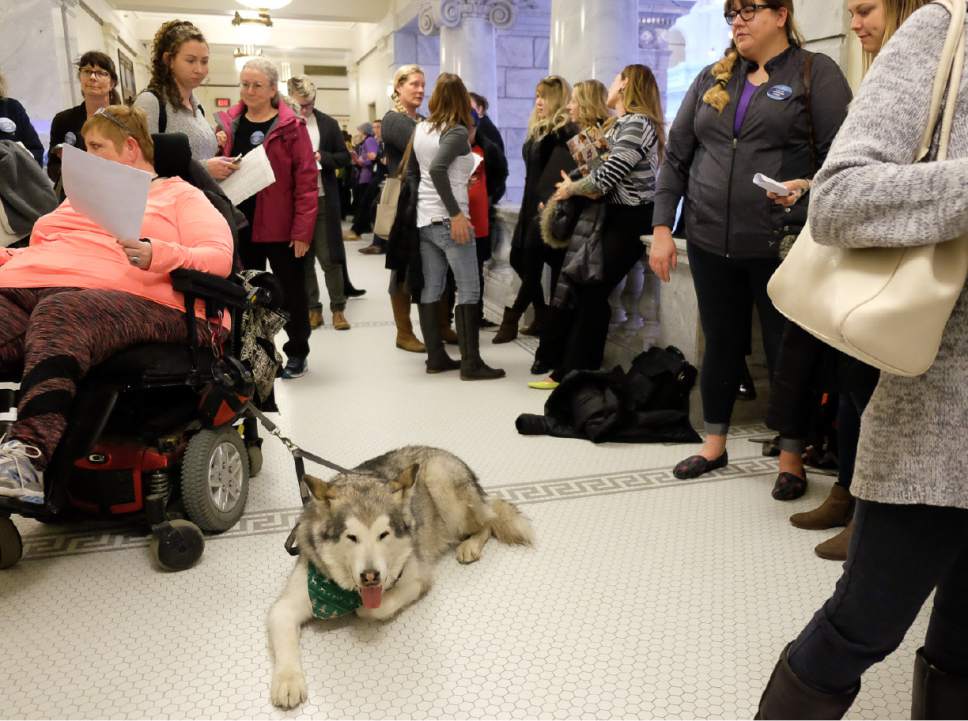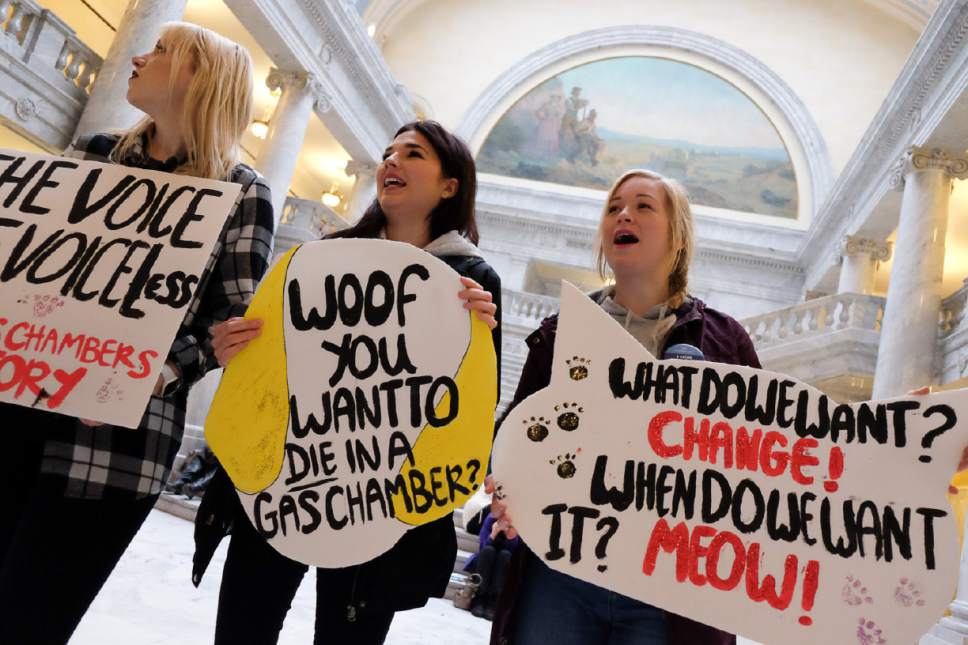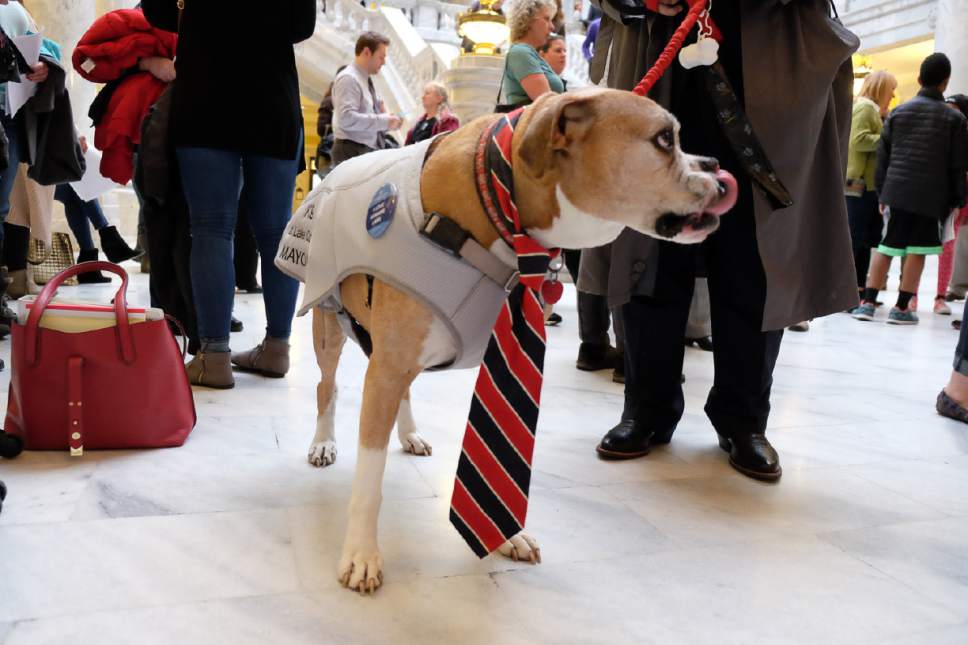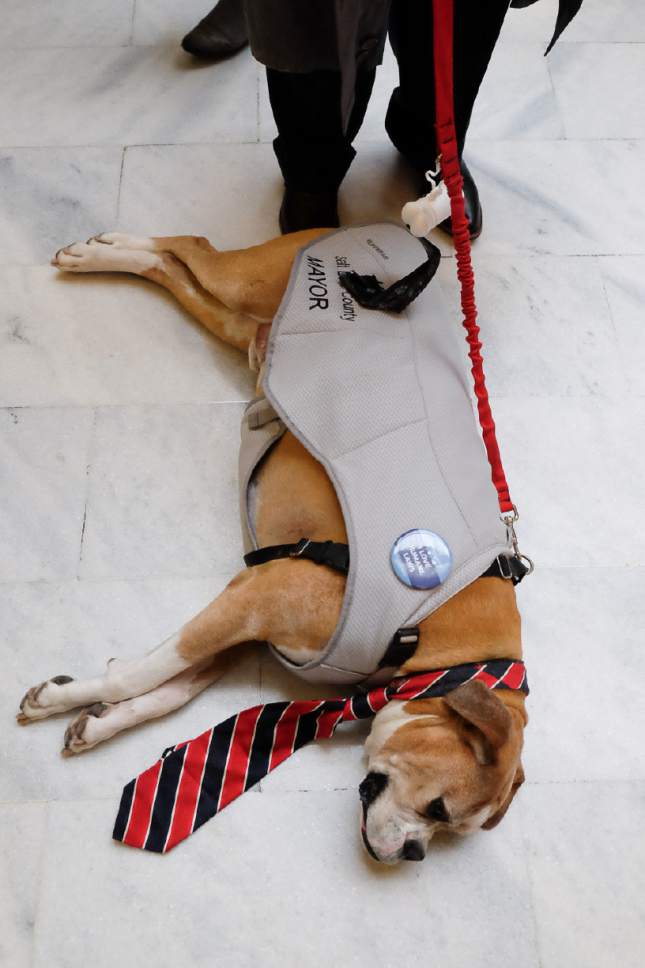This is an archived article that was published on sltrib.com in 2017, and information in the article may be outdated. It is provided only for personal research purposes and may not be reprinted.
All animal shelters in Utah would be required to use lethal injections for euthanasia instead of gas chambers that use carbon monoxide if a bill moving through the state Legislature becomes law.
Five of the 57 shelters in the state use those chambers, said Gene Baierschmidt, executive director of the Humane Society of Utah.
The Senate Government Operations Committee voted 6-2 Tuesday to endorse that change — which has often been proposed but failed through the years — under SB56. It now goes to the full Senate.
"I am happy to be the sponsor of this legislation. The main reason is, I love animals," said Sen. Pete Knudson, R-Brigham City. "How we care for animals and how we treat the animals says a lot about us."
He said Utah is one of four states in America that allow gas chambers.
"Euthanasia by injection is less costly, quicker and more humane," he said. Under this method, he said, animals lose consciousness in three to five seconds.
"Gas chambers can take up to 30 minutes for an animal to lose consciousness," he said. "Many animals call out in fear."
But Sen. David Hinkins, R-Orangeville, said some shelters in his rural district fear switching would cost too much. He said it could also increase risk to handlers of wildlife, such as rabid raccoons that are difficult to inject safely.
Several groups — including the Humane Society and the Best Friends Society — said they offer grants to help cover the costs of transition and any higher costs from injections. Hinkins said he will take that information back to shelters in his area to see if it changes their opinions, but he is a no vote for now.
Spencer Conover, of the Humane Society, testified that he has administered 5,000 injections for euthanasia to animals in all kinds of conditions, including many that were hard to handle. "I am proof positive that they don't need" a gas chamber.
Sandy City Council member Kristin Coleman-Nicholl testified that her city switched from use of a gas chamber last year.
"The change definitely was easier than anyone thought it would be. The staff has embraced the policy and has adjusted very well. Our level of service has not gone down, and we still handle wildlife. None of our employees has reported any injury or incidents," she said.
The vote Tuesday came after about 100 animal lovers held a rally in the morning in the Capitol Rotunda to support the bill and lobby legislators. They filled the hearing room and crowded into the hallway outside it.
One service dog with the group even wore a tie — naturally with both red and blue stripes, as to not offend either major party. A sign and chant by the group early in the day was, "What do we want? Change. When do we want it? Meow," instead of now.









